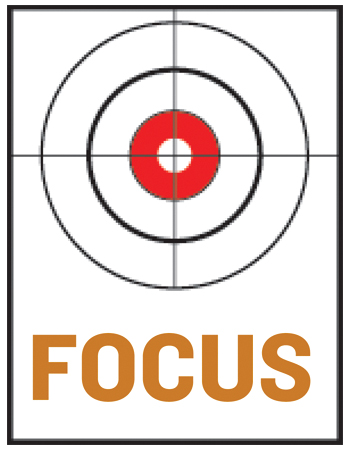By Kyle Aristophere T. Atienza, Reporter
BRIX JUSTINE R. PAGTALUNAN, a millennial voter, thinks his relatives are unlikely to vote for opposition candidates at next year’s elections.
Not because they don’t deserve voters’ trust, but more because of the risk of being branded communists or terrorists online by minions of the ruling administration.
 “This is especially true now that the campaigns of certain candidates are blatantly financed and publicized in both print and digital media,” the 25-year-old entrepreneur said in a Facebook Messenger chat.
“This is especially true now that the campaigns of certain candidates are blatantly financed and publicized in both print and digital media,” the 25-year-old entrepreneur said in a Facebook Messenger chat.
“Social networking platforms and influencers are maximized to promote these candidates and enhance their image, exploiting their reliance on the internet for facts,” he added.
Fake news has been with us since time immemorial, and from the 2016 presidential elections to the coronavirus pandemic, it has proven to spread fast. It also poses a greater danger thanks — or no thanks — in large part to social media.
Civil society should help combat disinformation campaigns during the campaign season for the 2022 general elections, political analysts said.
“Voters would be prone to electing the undeserving ones if fake news continues to drown out and overwhelm the truth,” Danilo A. Arao, a University of the Philippines journalism professor who started the group KontraDaya said in a Messenger chat.
About 45% of Filipino adults had access to the internet in 2019, according to a Social Weather Stations (SWS) poll. About 98% of them or 29.4 million Filipinos had Facebook accounts.
Of 66.2 million adult Filipinos, about a quarter or 15.7 million people use Facebook to read news daily, SWS said.
Among social media sites, Facebook remains to be the worst perpetrator of fake news, according to a global poll by the Centre for International Governance Innovation and Ipsos.
Mr. Arao said people who stay mostly at home amid a coronavirus pandemic must be taught how to spot fake news so they don’t fall prey to disinformation campaigns by certain political camps.
DIGITAL CAMPAIGN
Disinformation was among the topics discussed at the 14th meeting of the Association of Southeast Asian Nations Ministers Responsible for Information in 2018.
Member countries issued a joint declaration to quell fake news, improve digital literacy and encourage agencies to develop mechanisms to address the rise of fake news.
Traditional face-to-face campaigns may no longer be allowed at next year’s elections as the pandemic drags on, according to the Commission on Elections.
“Digital campaigning may sound like an inexpensive, attractive idea, but this will deprive a large segment of the population of vital information,” Mr. Arao said. “Not all people have access to the internet. Even in urban areas, internet connection is generally slow and intermittent.”
He said traditional media such as print, radio and television remain viable platforms in reaching out to people, together with social media.
“All media platforms should be maximized in the probable absence of face-to-face campaigns,” he said.
Mr. Arao said the Commission on Elections must look at the possibility of having campaign rallies with small crowds to ensure the voters are well informed.
“An election loses a part of its democratic character when people are not informed properly about their candidates,” Bryan E. Gonzales, executive director at Human Rights and Peoples Empowerment Center, said in a Messenger chat.
“The Philippines is obviously not doing its part in quelling fake news despite the claims of the government, mainly through the Presidential Communications Operations Office (PCOO),” Mr. Arao said.
“Ironically, it is the PCOO and the government media under it that have proven to be guilty of spreading fake news through the years.
The PCOO drew flak last year after its official Facebook page shared false information claiming franchise violations by ABS-CBN Corp. It also shared a post claiming that journalists who supported the media giant’s franchise renewal were communist fronts.
FACEBOOK TROLLS
“Social media trolls employed by well-funded candidates exert a strong influence,” Neri J. Colmenares, a human rights lawyer and former congressman, told a news briefing this month in Filipino.
“If we can convince young people who have mastered social media to join the battle for their future, we’re 100% sure,” he told the briefing for the launch of a political party, referring to the 2022 elections.
“Even if administration candidates spend billions of pesos on trolls, we can fight them.”
“The 2016 presidential contest is widely considered as the first social media election in the Philippines,” according to a study published online by Cambridge University Press.
President Rodrigo R. Duterte used the grassroots model for his campaign, it said, citing 20 million Facebook activities and 39,942 randomly sampled comments across the official Facebook pages of key presidential candidates.
“Such inconsistencies raise the prospect that Duterte’s online victory was fabricated by paid trolls and fake accounts,” according to the study. “Instead, our analysis suggests that Duterte’s digital fanbase was, at least in part, a reflection of offline, grassroots political support.”
Mr. Duterte’s supporters were not only aggressive in their support for him online; they were more committed to him offline as well, it added.
“There is nothing to expect from a government that continues to be an enemy of basic freedoms and a perpetuator of lies, misinformation and disinformation,” Mr. Arao said.
“When people are bombarded with fake news and distorted pieces of information everyday, we either take these things altogether as reality or we become disillusioned and refuse to believe in anything,” Mr. Gonzales said.
Fake news can deepen divisions among citizens. “Disinformation is deliberately employed to trigger prejudices that make meaningful solidarity difficult. The result is an ‘us against them’ situation that the powers-that-be continue to exploit,” he added.
Mr. Gonzales said progressive candidates and other opposition figures who’ve been vilified by administration allies would likely suffer from fake news.
Mr. Duterte has accused members of a progressive bloc in the House of Representatives of participating in the armed rebellion. His task force against communist insurgency has also accused opposition members and journalists for being communist fronts.
“Fake news has been weaponized against different sectors of society that continue to suffer from discrimination, disfranchisement, and so on,” Mr. Gonzales said. “Fake news deliberately misrepresents the image and interests of these groups, which are already struggling to establish a foothold in our democratic processes and institutions, including our elections.”
Civil society must inform and organize the public at the grassroots level, Mr. Gonzales said.
He said there were now dozens of organizations and networks devoted to fact-checking, media literacy and digital rights. Several people’s organizations and advocacy groups have also been cheating social media’s dangerous algorithms by informing and organizing people at the grassroots level.
Mr. Pagtalunan, the millennium voter mentioned at the outset, said he was more worried about older relatives who rely on the internet to get news updates.
“I’m worried that my family members might be affected by fake news in the upcoming polls. I think most of my relatives won’t vote for someone who’s publicly opposed to the policies of Duterte because they can be branded communists or terrorists online.”







 “This is especially true now that the campaigns of certain candidates are blatantly financed and publicized in both print and digital media,” the 25-year-old entrepreneur said in a Facebook Messenger chat.
“This is especially true now that the campaigns of certain candidates are blatantly financed and publicized in both print and digital media,” the 25-year-old entrepreneur said in a Facebook Messenger chat.